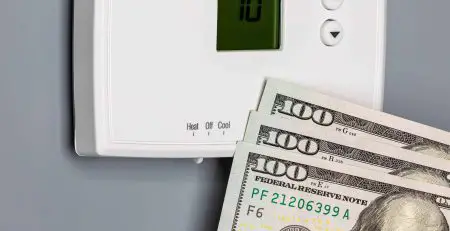In 2023, some states are providing their own stimulus payments, and this can have a significant impact on housing opportunities for those who receive them. In this article, we’ll take a closer look at which states are offering stimulus payments and how they are impacting the housing market. Whether you’re a current homeowner, a renter, or looking to purchase a home in the near future, understanding these trends can help you make informed decisions about your housing situation.
What to Know About Stimulus Payments
For 2023, many states have decided to step in and provide their own stimulus payments to help residents deal with financial strain. While these payments vary in amount and eligibility, they can be a lifeline for families struggling to make ends meet.
Currently, several states have already announced their plans to provide stimulus payments in 2023. It’s important to check with your state’s government website to determine if any opportunities exist for your state or to see if you qualify. While these stimulus payments can be a boost for many residents, it’s important to note that they may not be enough to cover the high costs of housing in many areas. As such, individuals and families should be careful when making housing decisions, taking into consideration not just their stimulus payments but also their long-term financial stability.
Housing Impact of Stimulus Payments
As we have seen, many states have stepped in to provide their own stimulus payments in 2023 to help residents cope with ongoing economic challenges. While these payments can provide a welcome financial boost for many households, it’s important to understand how they may impact the housing market.
One immediate impact of the stimulus payments is that they can provide a much needed source of funds. For example, the support that a household receives through a stimulus payment may be able to help with the costs of buying a home like a down payment or closing costs. If they are a renting household then the funds may be able to help with expenses like a security deposit. In addition, the stimulus payments can also provide a bit of a cushion for current homeowners or renters who may be struggling to keep up with housing payments.
Potential Drawbacks
While there are some benefits that households can face, there are also some drawbacks. It’s worth noting that these stimulus payments may also contribute to rising home prices in some areas. As potential homebuyers have more cash on hand, they may be willing to bid up prices for available properties, driving up demand and pricing out some buyers. This trend has been particularly noticeable in areas where inventory is already low and competition for homes is fierce.
Another point worth noting is that even though stimulus support can be beneficial, it may not be enough to provide a long-term solution. It’s important to remember that stimulus payments are a short-term measure, and households who are facing financial difficulties should seek out other resources and assistance as well.
Housing Assistance Alternatives to Stimulus Support
While stimulus payments can provide a much-needed financial boost, they are not the only resources available to individuals and families struggling with housing costs. Here are a few additional resources that can be helpful:
- Mortgage Assistance Programs
- Rental Assistance Programs
- Affordable Housing Assistance
- Housing Counseling
- Legal Assistance
By taking advantage of these and other resources, individuals and families can find the support they need to stay in their homes and maintain stable housing in the face of economic challenges. Whether it’s through stimulus payments, assistance programs, or other resources, there are a range of options available to help households navigate these difficult times and find financial stability.
Mortgage Assistance Programs
Many states and local governments offer mortgage assistance programs to help homeowners who are facing financial difficulties. These programs may include loan modifications, forbearance, and other options that can help keep homeowners in their homes.
Rental Assistance Programs
Local and state governments can also offer rental assistance programs. These programs can help families who are struggling to keep up with rent payments. These programs may provide financial assistance to cover a portion of rent costs, or they may offer other forms of assistance such as housing counseling and case management services. You can search for available opportunities online.
Affordable Housing Assistance
Through federal programs like Section 8 or Public Housing, households can access affordable housing support. Through Section 8 (also known as the Housing Choice Voucher Program), qualifying households will get vouchers that they can use towards housing costs. This would include the cost of rent for a property in the private market. There are some areas that allow the vouchers to go towards the cost of buying a home as well. On the other hand, public housing offers housing units at an affordable rent for tenants.
Housing Counseling
Housing counseling services can provide valuable assistance to households facing housing challenges. These services can include financial counseling, credit counseling, and other resources that can help individuals and families make informed decisions about their housing options.
Legal Assistance
Legal assistance can be helpful for homeowners who are facing foreclosure or other legal challenges related to their housing. Many legal aid organizations offer free or low-cost services to help homeowners navigate the legal system and protect their rights.
Bottom Line
The 2023 stimulus payments being offered by various states can be a lifeline for many households struggling with ongoing economic challenges. While they can provide some financial relief for individuals and families, it’s important to remember that they are meant to be a short-term measure and may not be enough to provide a long-term solution.
As we have seen, there are a range of other resources and assistance programs available to households facing housing challenges. From mortgage assistance programs to rental assistance, affordable housing, and legal assistance, there are a variety of options available to help households navigate these difficult times and find some stability. It’s important to stay in the loop of what’s available!












